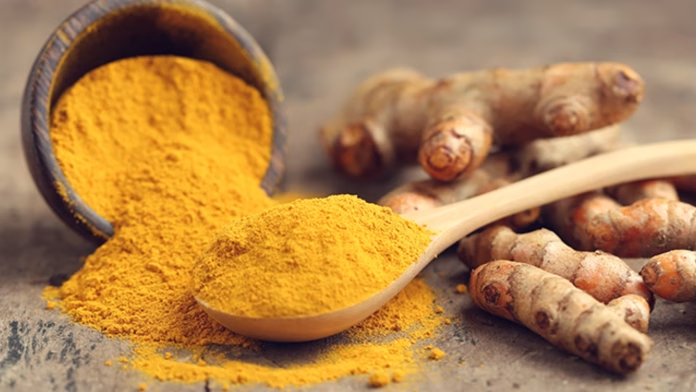High cholesterol levels have become a prevalent health concern affecting millions of individuals worldwide. It is often associated with an increased risk of cardiovascular diseases, including heart attacks and strokes. If your husband’s cholesterol levels are off the charts, it is crucial to take proactive measures to address this issue and promote his well-being. In recent years, turmeric, a vibrant yellow spice commonly found in Indian cuisine, has gained attention for its potential health benefits, including its role in cholesterol management. In this article, we will delve into the relationship between cholesterol and turmeric, exploring the scientific evidence behind turmeric’s potential to lower cholesterol levels and discussing practical ways to incorporate it into your husband’s diet.
Understanding Cholesterol and its Impact:
Cholesterol is a waxy, fat-like substance produced by the liver and obtained through certain foods. While it is essential for various bodily functions, an excess of low-density lipoprotein (LDL) cholesterol, commonly referred to as “bad” cholesterol, can lead to the accumulation of plaque in the arteries, narrowing them and impeding proper blood flow. This condition, known as atherosclerosis, increases the risk of cardiovascular diseases.
Traditional Approaches to Cholesterol Management:
Standard approaches to managing high cholesterol levels typically involve lifestyle modifications, such as adopting a healthy diet low in saturated and trans fats, regular exercise, and weight management. In some cases, medication may be prescribed to further control cholesterol levels. However, these approaches may not be sufficient for everyone, and alternative strategies are being explored.
Exploring the Potential of Turmeric:
Turmeric, derived from the Curcuma longa plant, has a long history of use in traditional medicine, particularly in Ayurveda and traditional Chinese medicine. Its active compound, curcumin, has been extensively studied for its potential health benefits. Research suggests that curcumin may possess cholesterol-lowering properties, making turmeric an intriguing option for those with high cholesterol levels.
Curcumin’s Impact on Cholesterol Metabolism:
Studies have shown that curcumin may help regulate cholesterol metabolism by influencing key enzymes involved in cholesterol synthesis and metabolism. It has been found to inhibit the activity of HMG-CoA reductase, an enzyme responsible for cholesterol production in the body. Additionally, curcumin may enhance the activity of cholesterol receptors, aiding in the clearance of LDL cholesterol from the bloodstream.
Anti-Inflammatory and Antioxidant Effects:
Chronic inflammation and oxidative stress play crucial roles in the development of atherosclerosis. Curcumin has been demonstrated to possess potent anti-inflammatory and antioxidant properties. By reducing inflammation and neutralizing harmful free radicals, curcumin may help prevent the formation of plaque in the arteries, promoting cardiovascular health.
Incorporating Turmeric into Your Husband’s Diet:
While turmeric can be a valuable addition to your husband’s cholesterol management plan, it is important to note that its absorption and bioavailability are limited. Combining it with black pepper, which contains piperine, can enhance curcumin’s absorption. Consider the following practical tips:
- Turmeric as a Spice: Encourage your husband to incorporate turmeric into his cooking by adding it to various dishes. It can be used in curries, soups, stir-fries, and even salad dressings. Experiment with different recipes to find enjoyable ways to include this spice in his meals.
- Golden Milk: Prepare golden milk by combining turmeric with warm milk, a pinch of black pepper, and a natural sweetener like honey. This soothing beverage can be consumed before bedtime to promote relaxation and potential cholesterol-lowering effects.
- Turmeric Supplements: If incorporating turmeric into meals proves challenging, consider turmeric supplements standardized to contain a high concentration of curcumin. Consult a healthcare professional before starting any supplementation regimen.
Final Thoughts:
While turmeric and its active compound curcumin show promise in cholesterol management, it is important to approach its usage as a complementary strategy rather than a standalone solution. Encourage your husband to maintain a balanced diet, engage in regular physical activity, and follow any prescribed medications or medical advice. Turmeric can be a flavorful and potentially beneficial addition to his cholesterol-lowering journey. However, it is crucial to consult with a healthcare professional before making any significant changes to his diet or lifestyle. By combining holistic approaches with medical guidance, you can empower your husband to take charge of his health and work towards achieving healthier cholesterol levels, reducing the risk of cardiovascular diseases, and improving his overall well-being.





